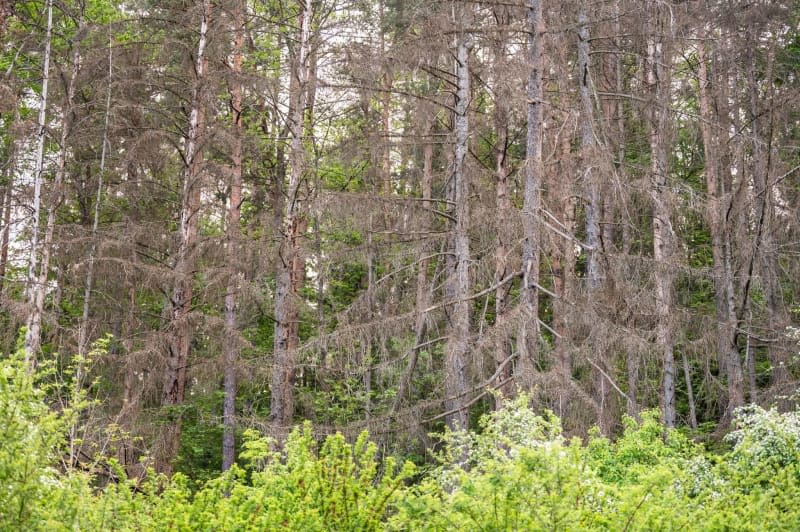New survey shows Germany's woodlands are a 'long-term patient'

Germany's woodlands continue to be under stress from heat, drought and beetle infestation, Agriculture Minister Cem Özdemir said in Berlin on Monday on presenting a new report.
The woodlands were becoming "a long-term patient," and a long-term cure was needed, he said in presenting the new forestry condition survey for 2023.
The data reveal that among the commonest species – spruce, pine, beech and oak – just one in five trees is completely healthy.
Özdemir called for a move away from monoculture to mixed woodland, saying that this was a generational project.
The report found that there had been "no evident improvement in forestry conditions, but also no evident deterioration" compared with 2022.
In the case of pines, there was a slight improvement, as the proportion of trees with obviously lighter crowns fell to 24% from 28%. By contrast, the proportion of the other species showing signs of severe crown damage rose.
The data derive from the annual forestry survey taken by means of sampling since the 1980s. Around one third of Germany's land surface is woodland.

